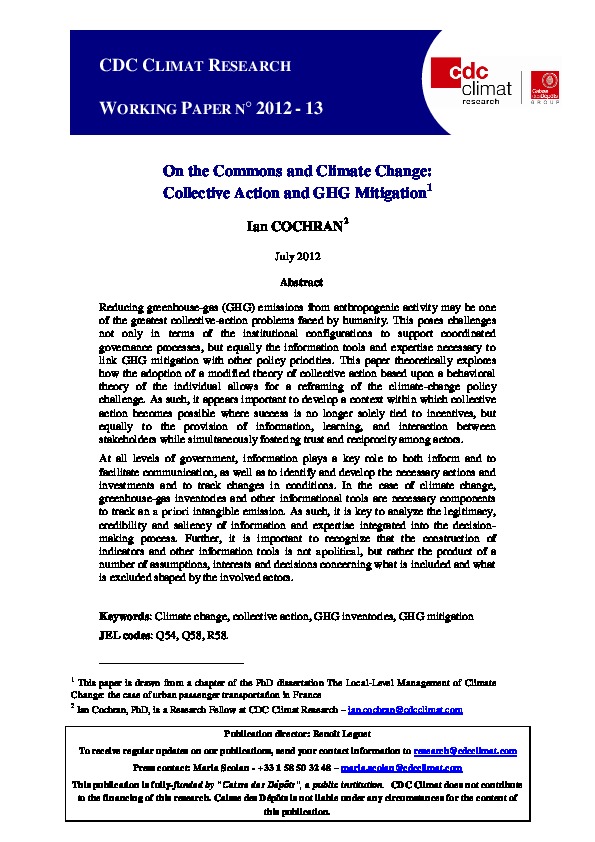On the Commons and Climate Change: Collective Action and GHG Mitigation
By Ian COCHRAN
Reducing greenhouse-gas (GHG) emissions from anthropogenic activity may be one of the greatest collective-action problems faced by humanity. This poses challenges not only in terms of the institutional configurations to support coordinated governance processes, but equally the information tools and expertise necessary to link GHG mitigation with other policy priorities. This paper theoretically explores how the adoption of a modified theory of collective action based upon a behavioral theory of the individual allows for a reframing of the climate-change policy challenge. As such, it appears important to develop a context within which collective action becomes possible where success is no longer solely tied to incentives, but equally to the provision of information, learning, and interaction between stakeholders while simultaneously fostering trust and reciprocity among actors.
At all levels of government, information plays a key role to both inform and to facilitate communication, as well as to identify and develop the necessary actions and investments and to track changes in conditions. In the case of climate change, greenhouse-gas inventories and other informational tools are necessary components to track an a priori intangible emission. As such, it is key to analyze the legitimacy, credibility and saliency of information and expertise integrated into the decision-making process. Further, it is important to recognize that the construction of indicators and other information tools is not apolitical, but rather the product of a number of assumptions, interests and decisions concerning what is included and what is excluded shaped by the involved actors.

